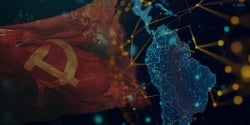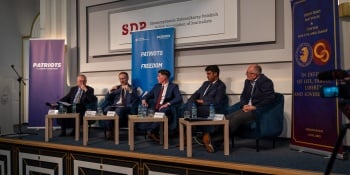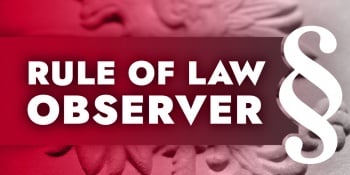Published: 28.02.2025

An interview with Venezuelan dissident and essayist Alejandro Peña Esclusa conducted by Olivier Bault, Communications Director of the Ordo Iuris Institute. The Polish translation of this conversation was published on February 17 in the weekly Do Rzeczy. Below, you will find a recording of this interview in English.
Alejandro Peña Esclusa is an internationally recognized expert on leftist organizations operating in Latin America, particularly the São Paulo Forum. This organization was created in 1990, shortly after the fall of the Berlin Wall, in São Paulo, Brazil, by Cuban dictator Fidel Castro and Lula da Silva, the head of the Brazilian Workers’ Party. The São Paulo Forum brings together socialist and communist parties and organizations from across Latin America, and up to ten incumbent presidents in the region are currently affiliated with it.
Peña Esclusa has written extensively on this topic, publishing numerous articles and several books, which have been translated in multiple languages (though, unfortunately, none in Polish). Two of his most notable books, published in 2023, are The São Paulo Forum’s Cultural Warfare and The Electoral Fraud of the São Paulo Forum.
In his interview with Olivier Bault, Peña Esclusa explains the electoral fraud methods developed by the Hugo Chávez regime in Venezuela, which were later exported to other Latin American countries—and beyond. He also discusses the relationship between the São Paulo Forum and the U.S. Democratic Party, while expressing concerns about the political situation in Europe. He sees parallels between developments in Europe and the processes he previously witnessed in Venezuela and other Latin American countries.
Currently residing in Italy, Peña Esclusa was imprisoned in Venezuela by the Chávez regime. Reflecting on his experience, he recalls:
“I was a presidential candidate when Hugo Chávez ran, and I said many things about him, all true, but he wasn't worried about that. He really was worried when I started to travel all over Latin America explaining what the São Paulo Forum is. Then he ordered my jailing.”

02.05.2025
· The Ordo Iuris Institute, the Hungarian Center for Fundamental Rights, and the Foundation of the Patriots for Europe group in the European Parliament organized a conference in W

09.04.2025
• On April 8, the Ordo Iuris Institute presented the Polish version of a document with proposals for reforming the European Union, prepared jointly with Hungary’s Mathias Corvinus Collegium (MCC).

08.04.2025
Sixth Court Hearing Ends Without Progress

07.04.2025
In response to the liberal left’s self-proclaimed “militant democracy” in Poland and